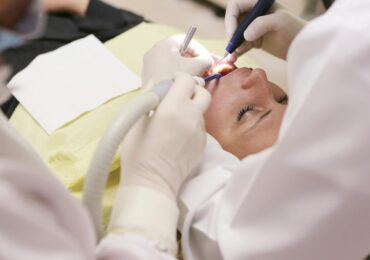Table of Contents
- Recognizing the Signs of a Dental Emergency
- Immediate Actions to Take
- Common Types of Dental Emergencies
- At-Home Self-Care Tips
- Knowing When to Seek Professional Help
- Preventive Measures to Avoid Future Emergencies
- The Importance of a Dental First Aid Kit
- Final Thoughts
Recognizing the Signs of a Dental Emergency
A dental emergency can manifest in various ways, each requiring a distinct level of attention and care. The early recognition of severe toothaches, for instance, can prevent more significant issues down the line. Often, symptoms such as intense pain, unexplained swelling, and persistent bleeding may serve as indicators of underlying problems that demand immediate care. Recognizing these signs sooner rather than later ensures prompt treatment, reducing potential damage. For instance, a toothache might seem minor initially, yet it can escalate rapidly, requiring emergency intervention if an infection is involved. Therefore, familiarizing oneself with these early signs is integral to managing dental health effectively.

Immediate Actions to Take
A calm demeanor, paired with swift action, is the keystone of managing dental emergencies successfully. The initial minutes are often crucial. For example, if a tooth is knocked out, placing it in milk or saline solution can preserve vital cells necessary for reattachment. Beyond that, rinsing the mouth with warm water helps cleanse and reduce the risk of infection. Such steps are not merely recommended—they’re essential. Managing bleeding with gentle pressure from a clean cloth or gauze while avoiding tooth roots can also be a lifesaver. As you navigate these precarious moments, having urgent dental care resources at your disposal enhances your preparedness and confidence to address the situation effectively until professional help is accessible.
Common Types of Dental Emergencies
The spectrum of dental emergencies can be baffling due to the myriad of unpredictable issues. Notable among these are cracked or fractured teeth, which pose significant threats, potentially affecting the nerve if not immediately addressed. Similarly, a lost filling or crown leaves the sensitive part of your tooth, the dentin, exposed to bacteria and sensitivity. Moreover, abscesses—often mistaken as minor nuisances—are pus pockets that signify severe infections and demand urgent care. Recognizing and understanding these common emergencies equips individuals with the knowledge to minimize further damage while awaiting dental intervention. For prompt and effective treatment, seeking emergency dental services is crucial. Each scenario, while unique, asks for a prompt and informed response to negate possible long-term repercussions.
At-Home Self-Care Tips
When professional help is beyond immediate reach, adopting practical self-care tips can provide a valuable bridge in dental emergencies. Applying a cold compress to the outside of the cheek at the affected site can help reduce swelling and numb the pain, granting temporary relief. Furthermore, a gentle rinse with warm salt water serves as an antiseptic, cleansing the mouth and diminishing harmful bacterial presence. Adopting a diet of soft foods like yogurt or applesauce while avoiding overly hot or cold items further protects affected teeth. For more guidance, the comprehensive Mayo Clinic guide on first aid for dental injuries elaborates on prudent measures to ensure you’re equipped to tackle these issues effectively.
Knowing When to Seek Professional Help
Distinguishing between issues that can be managed at home temporarily and those requiring immediate professional attention is vital for maintaining oral health. While mild discomfort may subside with home remedies, conditions marked by escalating pain, swelling that impedes breathing or eating, and trauma that causes significant damage warrant professional intervention without delay. In some instances, the pain might reflect underlying conditions like deep infections potentially threatening broader health if left untreated. Identifying these conditions minimizes potentially severe outcomes, safeguarding your dental and overall health. Always err on the side of caution—trusting a dental professional offers tailored solutions that address the root of the problem.
Preventive Measures to Avoid Future Emergencies
Adopting a lifestyle focused on dental prevention lessens the likelihood of encountering emergencies. One foundational approach involves hygiene practices like regular brushing and flossing, which mitigate plaque and prevent decay. Moreover, utilizing mouthguards during sports protects against fractures and preserves teeth alignment. Regular dental check-ups are preventive by detecting problems early and offering solutions before they escalate into full-blown emergencies. As part of these efforts, staying informed about foods and habits potentially harming dental health arms you with foresight, propelling you toward maintaining stronger, healthier teeth throughout your life.
The Importance of a Dental First Aid Kit
Preparing a dental first aid kit proves invaluable when emergencies occur. Not only does it serve as a stopgap in managing immediate dental crises, but its presence also fosters assurance in handling unforeseen scenarios efficiently. Stocking it with dental wax, temporary fillings, and antiseptic solutions ensures readiness. Grasping the use of each item enhances your ability to respond aptly to various situations, whether alleviating discomfort from loose braces or temporarily addressing lost fillings. This kit offers a vital lifeline until reaching professional care, reinforcing the importance of preparedness in upholding dental health.
Final Thoughts
Embracing preparedness in dental emergencies transforms daunting situations into manageable challenges. You secure swift resolutions by recognizing the signs of emergencies, acting decisively, and knowing when to consult professionals. Augmenting this approach with preventive strategies ensures a proactive stance, significantly reducing the potential for future emergencies. Fostering a vigilance and readiness mindset, supplemented by knowledge and practical tools, empowers you to safeguard your dental health confidently, allowing you to face whatever life throws at your teeth with composure and assurance.